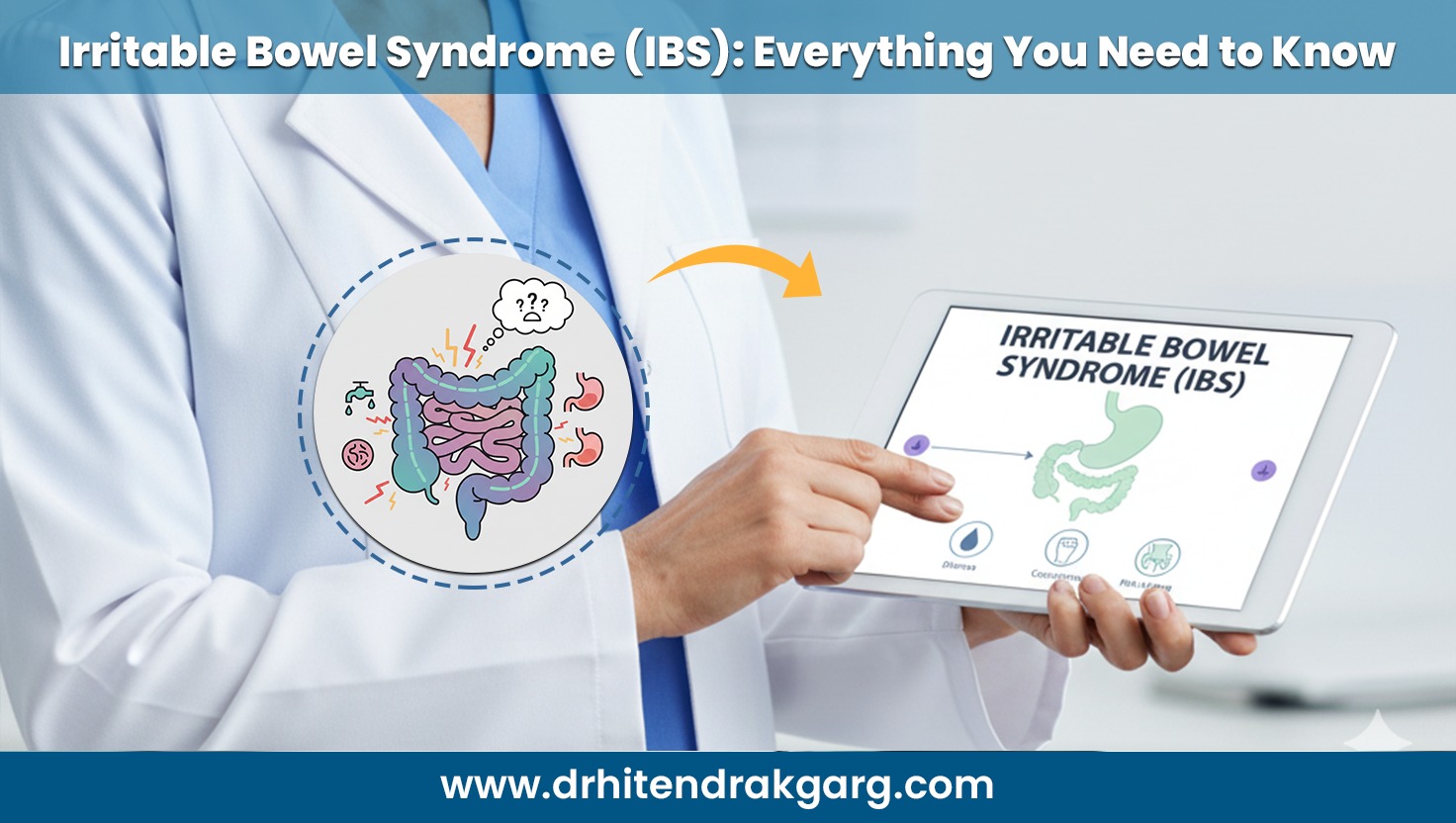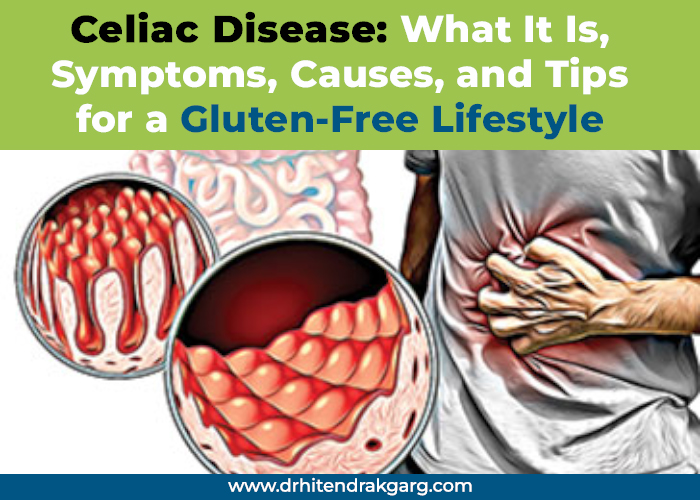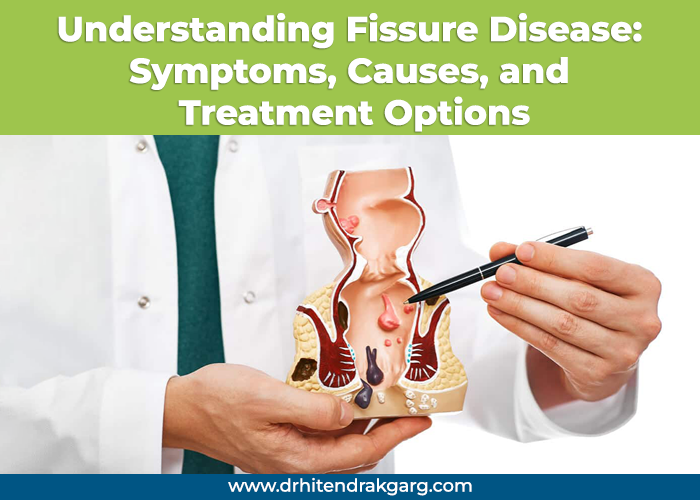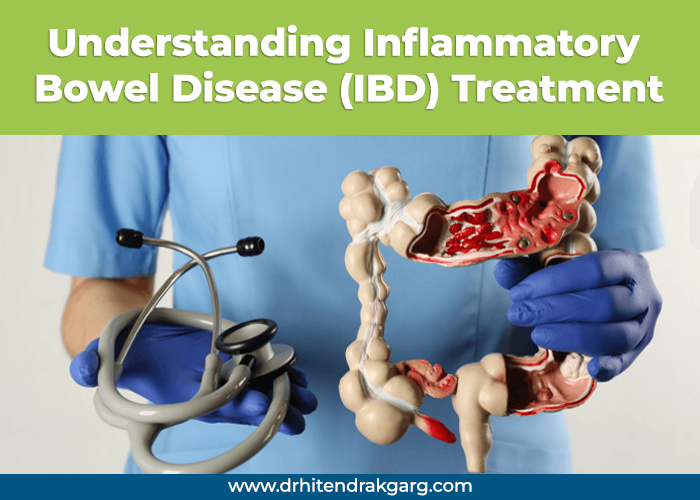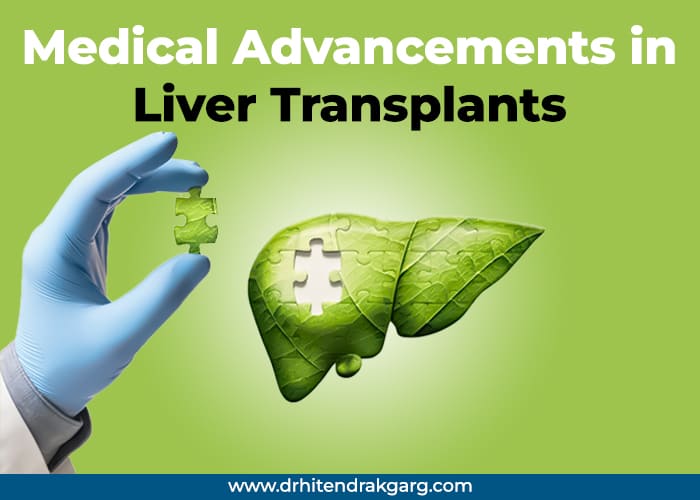Many people experience frequent stomach discomfort, bloating, or irregular bowel movements, but never realize it could be Irritable Bowel Syndrome (IBS). IBS is a common digestive problem that affects how your large intestine works. It is not a serious disease, but it can cause a lot of discomfort and affect your daily life. The good news is, IBS can be managed easily with the right lifestyle changes and medical guidance. Let’s understand everything about it step by step.
What Is IBS?
Irritable Bowel Syndrome (IBS) is a long-term condition that affects the large intestine (colon). People with IBS often have a sensitive gut, which reacts strongly to certain foods, stress, or changes in routine.
The intestinal muscles may contract more or less than usual, which leads to either constipation, diarrhea, or sometimes both.
Doctors classify IBS into three main types:
- IBS-C: Mostly constipation
- IBS-D: Mostly diarrhea
- IBS-M: Mixed type (both constipation and diarrhea)
Even though IBS causes uncomfortable symptoms, it does not cause any damage to the intestine or increase the risk of cancer.
Common Symptoms of IBS
IBS symptoms can vary from person to person, but some are very common. These include:
- Pain or cramping in the lower abdomen
- Bloating and excessive gas
- Constipation, diarrhea, or both
- Mucus in stool
- A feeling of incomplete bowel movement
- Fatigue and sleep issues due to discomfort
The symptoms may get worse after eating heavy, spicy, or oily foods or during times of emotional stress.
What Causes IBS?
There is no single cause of IBS. It usually happens because of a combination of factors that affect the brain and gut connection.
Here are some common causes and triggers:
- Stress and Anxiety – Emotional stress affects how your gut works and can make symptoms worse.
- Unbalanced Gut Bacteria – Too many or too few healthy bacteria in your intestines can cause IBS symptoms.
- Food Sensitivity – Some people cannot digest certain foods like caffeine, dairy, fatty foods, or artificial sweeteners.
- Hormonal Changes – IBS is more common in women, especially during menstrual cycles.
- Past Infections – IBS can sometimes develop after a severe stomach infection or food poisoning.
- Irregular Bowel Movements – Weak coordination between gut muscles and nerves can lead to pain or irregular motion.
How Is IBS Diagnosed?
There is no single test for IBS.
Doctors diagnose it by understanding your symptoms and ruling out other conditions.
A gastroenterologist will usually:
A gastroenterologist will usually:
- Ask about your medical history and eating habits
- Perform a physical examination
- Order blood or stool tests if needed
- In some cases, do an endoscopy or colonoscopy to rule out serious diseases
Once other diseases are ruled out, IBS can be managed effectively with proper treatment and diet
How to Treat IBS
There is no permanent cure for IBS, but the symptoms can be managed easily through diet, lifestyle, and medicines.
1. Eat the Right Food
- Follow a Low FODMAP Diet, which removes foods that cause gas and bloating.
- Avoid junk food, caffeine, alcohol, and carbonated drinks.
- Eat smaller, more frequent meals.
- Add fiber-rich foods if you suffer from constipation.
2. Manage Stress
IBS is closely connected to your emotions. Regular exercise, yoga, meditation, or deep-breathing exercises can help reduce stress and ease symptoms.
3. Take the Right Medicines
Depending on your IBS type, a gastroenterologist may recommend:
- Antispasmodic medicines to reduce stomach cramps
- Laxatives or stool softeners for constipation
- Anti-diarrheal medicines for frequent loose stools
- Probiotics to maintain gut bacteria balance
- Low-dose antidepressants if stress or anxiety is a trigger
4. Make Lifestyle Changes
- Drink enough water every day
- Get 7–8 hours of sleep
- Avoid smoking and alcohol
- Don’t skip meals or eat in a hurry
Living with IBS: Simple Tips
Living with IBS can feel challenging, but small changes make a big difference:
- Keep a food diary to find out what triggers your symptoms
- Eat slowly and mindfully
- Stay physically active
- Don’t ignore your bowel urges
- Visit a gastroenterologist regularly if symptoms continue
When Should You See a Doctor?
If you have stomach pain, bloating, or irregular bowel habits for more than a few weeks, don’t ignore it.
Sometimes, IBS symptoms can look like other serious digestive diseases. It’s always better to get a proper check-up.
Consult a gastroenterologist immediately if you notice:
- Unexplained weight loss
- Blood in stool
- Severe pain
- Persistent diarrhea or constipation
Conclusion
Irritable Bowel Syndrome (IBS) is common but manageable. By maintaining a healthy diet, reducing stress, and seeking medical advice, you can keep your digestion smooth and your daily life comfortable.
Remember, your gut health reflects your overall health — take care of it, and it will take care of you.
Consult an Expert
If you are struggling with constant digestive discomfort, consult Dr. Hitendra K. Garg, the Best Gastroenterologist in Delhi. Dr. Garg specializes in diagnosing and treating all kinds of gastrointestinal issues, including IBS, with a personalized and caring approach to help you live symptom-free.
